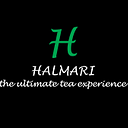Do herbal teas contain caffeine?
Herbal teas have long been cherished for their soothing flavors and purported health benefits. Often chosen as an alternative to caffeinated beverages, they offer a comforting ritual without the jolt of caffeine. But are all herbal teas truly caffeine-free? Also known as tisanes, are infusions made from herbs, spices, flowers, or other plant materials. Unlike true teas such as black, green, oolong, and white tea, which are derived from the Camellia sinensis plant, herbal teas do not contain tea leaves. Instead, they are crafted from a diverse array of botanical ingredients, each imparting its unique flavor and potential health properties. Of these teas, Chamomile tea is one of the finest herbal teas with great health benefits and excellent flavor profile.
Why You Should Turn to Herbal Teas?
One of the primary reasons people turn to herbal teas is to avoid the stimulating effects of caffeine. Caffeine, a natural stimulant found in various beverages like coffee, tea, and soda, can cause jitters, disrupt sleep patterns, and lead to dependency in some individuals. Thus, those seeking a caffeine-free alternative often gravitate towards herbal teas for their calming and relaxing qualities.
Many herbs commonly used in herbal teas, such as chamomile, lavender, and ginger, boast calming properties that can promote relaxation and reduce stress levels. Additionally, herbal teas are rich in antioxidants, vitamins, and minerals, making them a nourishing choice for overall well-being. By incorporating herbal teas into their daily routine, individuals not only avoid the negative effects of caffeine but also embrace a holistic approach to health and wellness.
Contrary to popular belief, not all herbal teas are entirely devoid of caffeine. While many herbal blends are naturally caffeine-free, certain ingredients commonly used in herbal teas may contain trace amounts of caffeine. For example, herbs like Yerba mate, guayusa, and yaupon holly naturally contain caffeine and are sometimes found in herbal tea blends marketed for their invigorating properties.
Moreover, some herbal teas may include ingredients derived from true tea plants, such as decaffeinated green or black tea leaves, to enhance flavor or add depth to the infusion. Although the caffeine content in these teas is significantly reduced compared to their caffeinated counterparts, they may still contain small amounts of caffeine.
To determine whether a herbal tea contains caffeine, it’s essential to familiarize yourself with the ingredients listed on the packaging. While the term “herbal tea” generally implies a caffeine-free beverage, teas that include ingredients like Yerba mate, guarana, or decaffeinated tea leaves may still contain trace amounts of caffeine.
Zero Caffeine Teas
If you’re specifically seeking a caffeine-free option, look for herbal teas labeled as such or opt for single-ingredient herbal infusions like chamomile, peppermint, or hibiscus, which are typically caffeine-free and offer a wide range of flavors and health benefits.
While most herbal teas are caffeine-free, some popular varieties may contain trace amounts of caffeine due to their ingredients:
Yerba Mate: Derived from the leaves of the Ilex paraguariensis plant, Yerba mate is a traditional South American beverage known for its stimulating effects. It naturally contains caffeine and is often blended with other herbs to create energizing herbal teas.
Guayusa: Native to the Amazon rainforest, guayusa is another caffeinated herb commonly used in herbal teas. Like Yerba mate, it provides a natural energy boost and may be included in blends marketed for its revitalizing properties.
Yaupon Holly: Indigenous to the southeastern United States, yaupon holly leaves contain caffeine and are occasionally used in herbal tea blends. While less common than Yerba mate or guayusa, yaupon holly contributes to the caffeine content of certain herbal teas.
Conclusion
While herbal teas are generally considered caffeine-free, it’s essential to be mindful of the ingredients used in specific blends. Some herbal teas may contain caffeine-containing herbs or additives derived from true tea plants, albeit in smaller quantities. By familiarizing yourself with the ingredients and opting for single-ingredient herbal infusions, you can enjoy the soothing benefits of herbal teas without the unwanted effects of caffeine. So next time you brew a cup of herbal tea, sip with confidence, knowing whether it contains caffeine or not.
